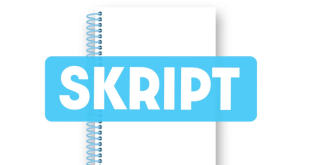The Project Management Professional (PMP) certification, offered by the Project Management Institute (PMI), is one of the most prestigious credentials in the field of project management. However, achieving this certification is no small feat. The PMP exam is known for its rigor and complexity, and many candidates find it challenging. If you’re considering taking the exam, understanding its difficulty and developing effective strategies to prepare for it are crucial steps in your journey toward certification. This article explores the difficulty level of the PMP exam and provides practical tips on how to crack it.
Understanding the PMP Exam
1. Exam Format and Structure
The PMP exam is a computer-based test consisting of 180 questions, which must be completed in 230 minutes. The questions are a mix of multiple-choice, multiple responses, matching, and fill-in-the-blank types. The exam covers a broad range of topics, including:
- People (42%): Focusing on leadership and team management.
- Process (50%): Addressing project management processes and practices.
- Business Environment (8%): Concerned with organizational strategy and compliance.
The questions test your knowledge of PMP Certification in Manila, your ability to apply these principles in various scenarios, and your understanding of project management best practices.
2. Difficulty Level
The difficulty of the PMP exam stems from several factors:
- Comprehensive Content: The exam covers a wide array of project management topics, including various methodologies, tools, and techniques.
- Application-Based Questions: Many questions are scenario-based, requiring you to apply your knowledge to solve complex problems rather than merely recalling facts.
- Exam Length and Pressure: With 180 questions in just under four hours, the exam tests not only your knowledge but also your stamina and focus.
How to Prepare for the PMP Exam
1. Understand the Exam Content Outline
Before diving into study materials, familiarize yourself with the PMP Exam Content Outline provided by PMI. This outline breaks down the exam content into domains and tasks, giving you a clear understanding of what to expect. Use this outline to guide your study plan and ensure that you’re covering all necessary topics.
2. Use a Study Guide and PMP Prep Book
Invest in a reputable PMP exam study guide and prep book. Books like PMBOK® Guide (Project Management Body of Knowledge) and Rita Mulcahy’s PMP Exam Prep are popular among candidates. These resources provide a comprehensive review of the exam content and offer practice questions to test your knowledge.
3. Take PMP Exam Prep Courses
Enroll in a PMP exam prep course, either in-person or online. These courses provide structured learning and often include interactive elements like quizzes and group discussions. Many prep courses are designed by experienced instructors who can provide valuable insights and tips for passing the exam.
4. Practice with Mock Exams
Taking practice exams is crucial for familiarizing yourself with the exam format and types of questions. Aim to complete several full-length mock exams under timed conditions. This practice will help you manage your time effectively during the actual exam and identify areas where you need additional study.
5. Study the PMBOK® Guide Thoroughly
The PMBOK® Guide is the foundational text for the PMP exam. Ensure you study it thoroughly, paying close attention to processes, knowledge areas, and project management terms. Understanding the PMBOK® Guide is essential for answering scenario-based questions and applying project management concepts.
6. Create a Study Plan
Develop a study plan that outlines your study goals, resources, and schedule. Break down the content into manageable sections and allocate time for each topic. Consistent study and revision are key to retaining information and building confidence.
7. Join a Study Group
Joining a PMP study group can be beneficial for collaborative learning. Study groups provide a platform for discussing difficult concepts, sharing study materials, and receiving support from fellow candidates. Engaging with a group can also help keep you motivated and accountable.
8. Focus on Weak Areas
Identify your weak areas and devote extra time to studying those topics. Use practice questions and review materials to strengthen your understanding. Addressing your weaknesses proactively will improve your overall performance on the exam.
9. Use Exam Preparation Tools
Leverage various exam preparation tools such as flashcards, study apps, and online forums. These tools can help reinforce key concepts and provide additional practice opportunities. Many tools offer features like progress tracking and adaptive learning to enhance your study experience.
10. Take Care of Yourself
Maintaining your physical and mental well-being is crucial during your exam preparation. Ensure you get adequate rest, exercise regularly, and manage stress effectively. A healthy body and mind will help you stay focused and perform better on the exam.
Tips for Exam Day
1. Arrive Early and Be Prepared
On the day of the exam, arrive at the testing center early to avoid any last-minute stress. Bring necessary identification and follow all instructions provided by the test center. Being prepared will help you start the exam with a clear mind.
2. Manage Your Time Wisely
During the exam, keep an eye on the clock and pace yourself. Allocate time to each question and avoid spending too long on any single question. If you encounter a difficult question, move on and come back to it later if time permits.
3. Read Questions Carefully
Read each question carefully and ensure you understand what is being asked before selecting an answer. Pay attention to keywords and scenarios, and use the process of elimination to narrow down your choices.
4. Stay Calm and Focused
Maintain a calm and focused mindset throughout the exam. If you feel anxious, take deep breaths and remind yourself of your preparation. Confidence and composure will help you think clearly and answer questions effectively.
5. Review Your Answers
If time allows, review your answers before submitting the exam. Check for any mistakes or unanswered questions. This final review can help you catch errors and ensure that you’ve answered all questions to the best of your ability.
Conclusion
The PMP exam is undoubtedly challenging, but with the right preparation and strategy, it is achievable. By understanding the exam format, using effective study resources, and employing smart exam strategies, you can increase your chances of success. Remember, the key to cracking the PMP exam lies in thorough preparation, consistent study, and maintaining a positive and focused mindset. Good luck on your journey to becoming a certified Project Management Professional!







